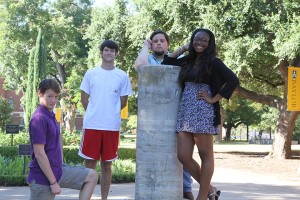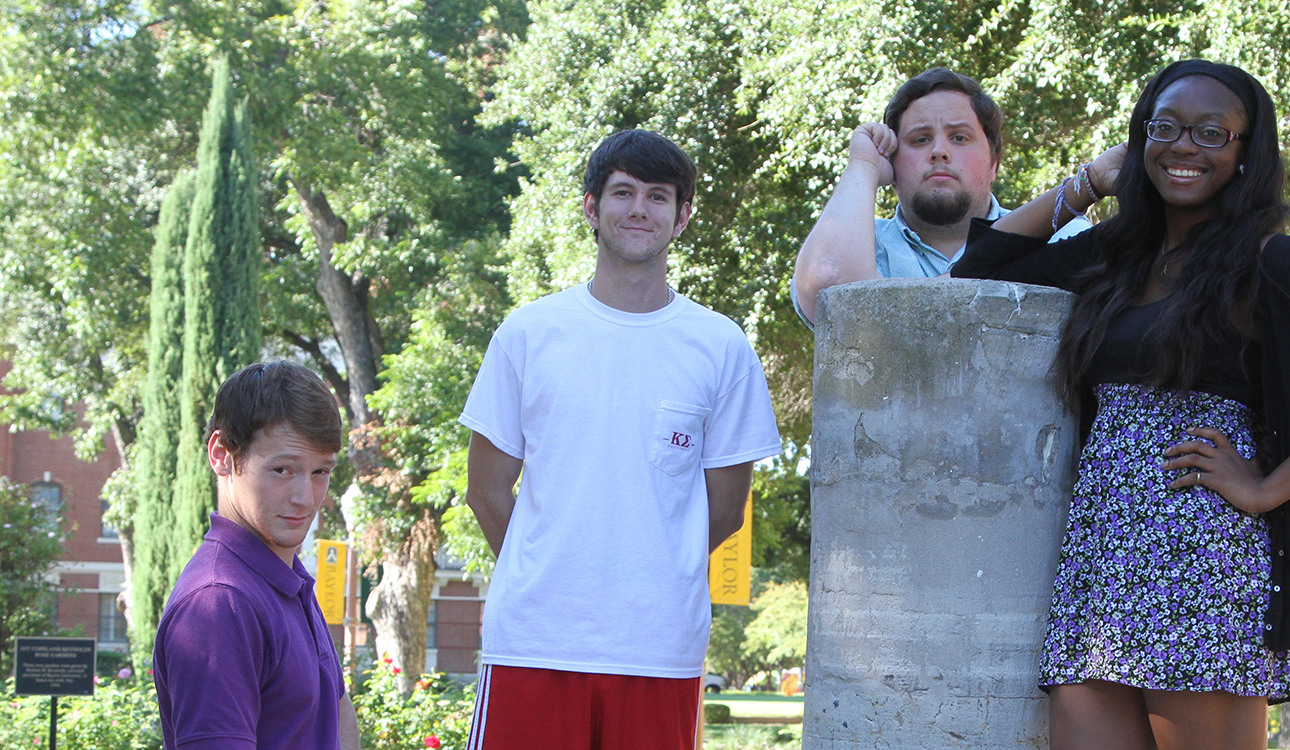
Robby Hirst | Lariat Photographer
Reporter
After a 10-year hiatus, the Residential Community Council returns to campus as an advocate for residential students.
The student group votes on issues relevant to students in Baylor’s residence halls, while developing a greater sense of community between on-campus residential communities, including halls and colleges.
Lisa Murphy, assistant director for residential living, said students have lived without the council for about a decade, but the council has returned to encourage student leadership within the on-campus community, provide an outlet for student concerns and give student residential leaders the opportunity to learn from others across the country.
“It’s a positive initiative,” Murphy said. “We wanted residents to have a bit more of a say about what’s going on in their halls.”
Murphy said the council is part of a national intercollegiate initiative that is often known as a Residence Hall Association on other college campuses. Councils from different universities interact periodically and share community-building ideas that encourage “mutual learning,” Murphy said.
“We felt like Baylor was missing out, in some sense, on learning from other institutions,” she said. “I feel like we have great things going on here too that we want to be able to share with other schools.”
The council consists of officers and voting representatives from each hall or residential college on Baylor’s campus.
Officers were selected by residence hall staff members and are upper classmen who have lived on campus for several years.
Positions include president, vice president of community development, vice president of administration, vice president of community standards, vice president of facilities and national communications chair.
With the exception of North Village Residential Community, each residential community contributes two representatives. North Village has three representatives – one each for the Heritage, Texana and University houses. There are 29 voting representatives in the council.
Voting representatives, who make decisions on student-submitted suggestions or proposed revisions of residential community policies, are required to be active members of a student hall organization known as Hall Leadership Team, Hall Council or Event Crew.
Greenville junior John Parker, the council president, said the council is the best representative of on-campus student concerns. Despite the presence of other student-minded groups like Student Senate, residential communities seemed to be overlooked, he said.
Parker agreed to be the council’s president because of the representation he can give to residential communities.
“I felt the voice of students on campus had been lacking,” he said. “I hope as an organization we bring a much needed voice to students on campus — making sure opinions are heard on a wide range of issues.”
Houston junior Oreva Eleyae, the council vice president of community standards and facilities, said she thinks having representatives from each hall will give students a greater voice and a more “enriched college experience.”
“Each representative actually lives there,” Eleyae said. “There’s a more accurate idea of what students are really thinking.”
The council aims to create student-advocates within residential communities, Murphy said.
Students with concerns about residential policies and procedures can approach the council to gain an understanding of why those regulations are in place.
In some instances, students will be able to present ideas and engage in discussion about residential community problems and possible solutions.
“Students have the opportunity to be the voice for their hall community,” Murphy said.
Through the council, halls and residential colleges are able to interact with one another and learn tactics for developing stronger communities within individual halls, Murphy said.
These encounters also allow hall leadership teams to plan activities that encourage inter-hall unity.
Parker said he hopes the council helps residence halls develop a true sense of community with one another.
“I want to help make campus feel more like home,” Parker said.
In the future, the council will act as a channel for student input regarding the remodeling and building of residential facilities, Murphy said.
The council’s second meeting of the semester is 5 p.m. Wednesday in the Alexander Residence Hall classroom. The council meets every other Wednesday.
Although hall representatives are the only attendees with voting power, interested students are invited to sit in on meetings, Parker said.
Parker said he hopes the council is able to effectively fulfill its purpose within the on-campus community.
“This could easily become a paper-only organization, but I’m hoping to make it worthwhile,” he said.






